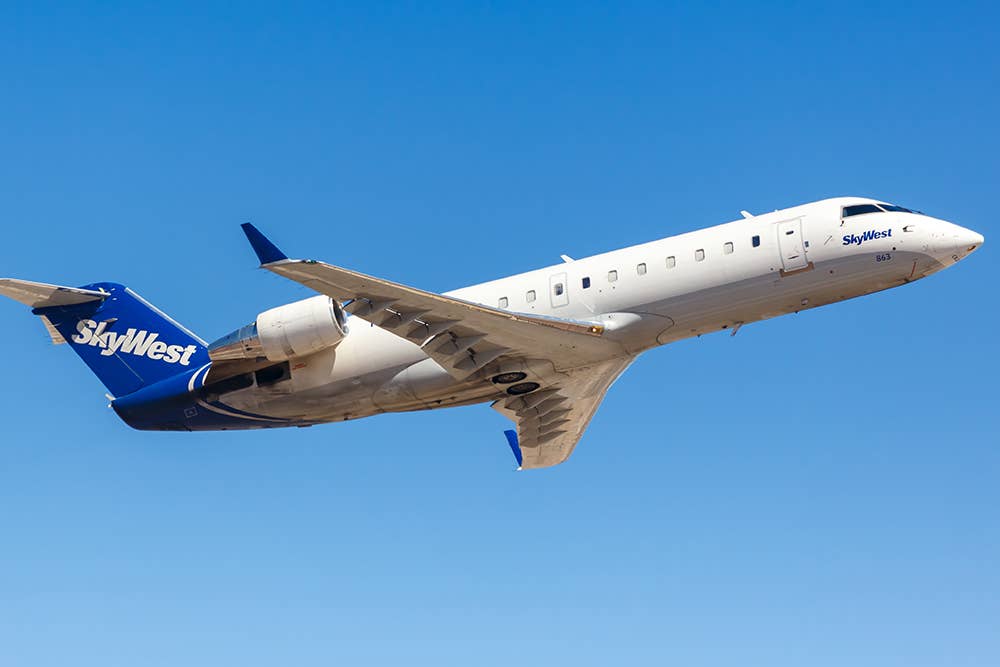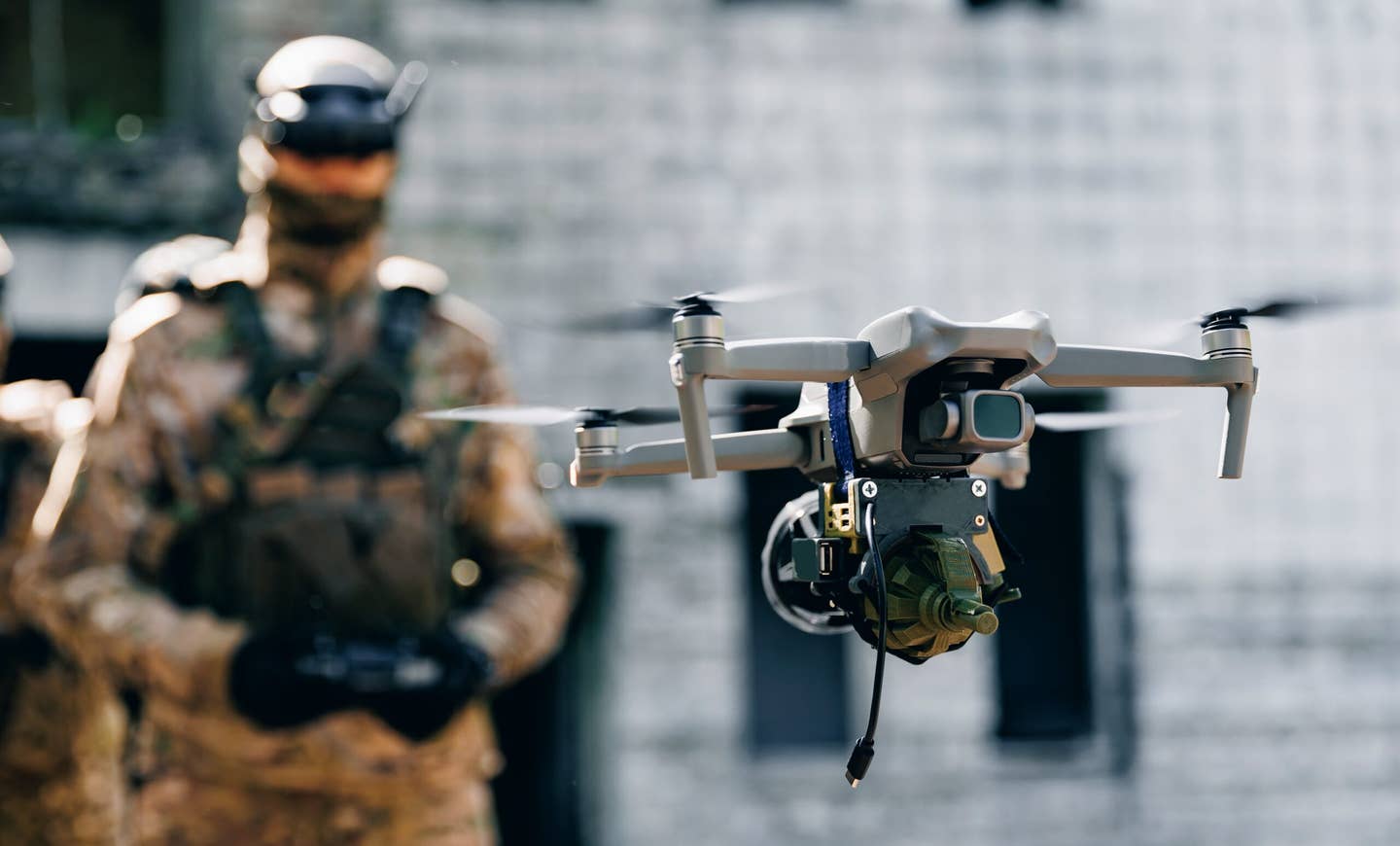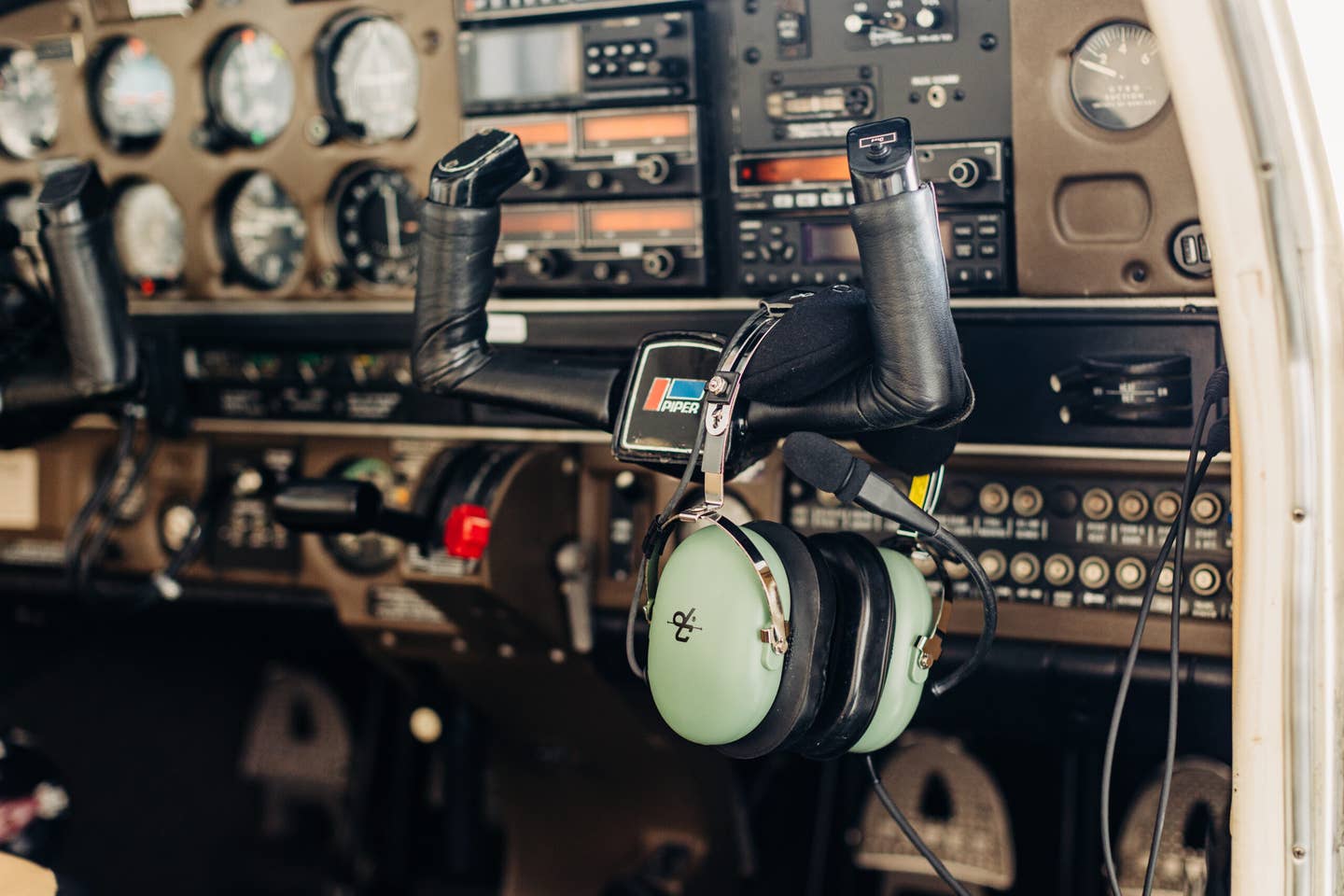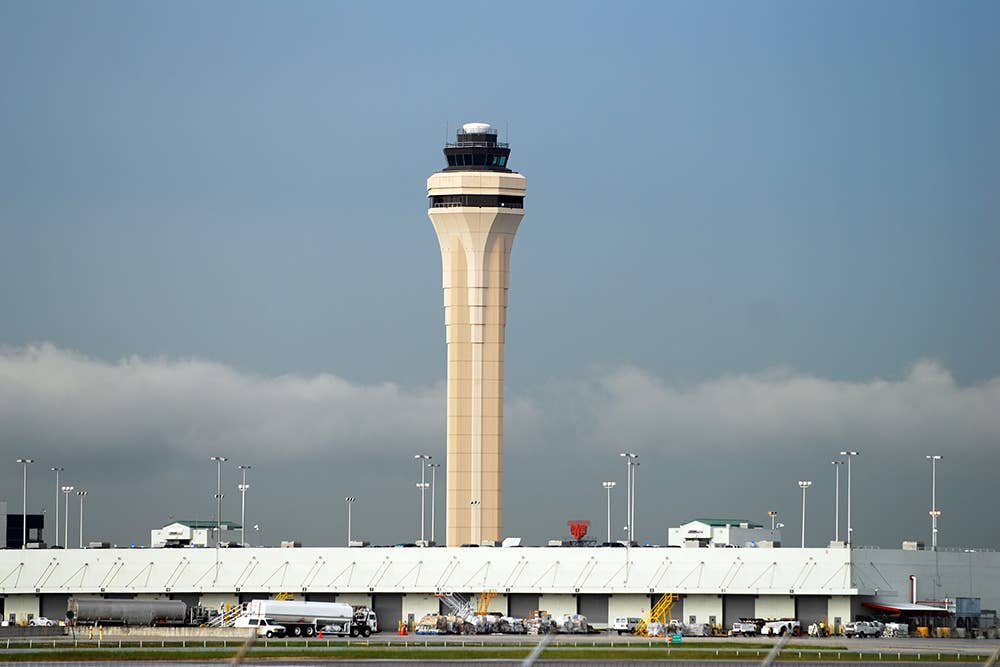
A SkyWest Bombardier CRJ-200 airplane at Phoenix Sky Harbor airport (PHX) in Arizona. [File photo: Shutterstock]
SkyWest Inc. (NASDAQ: SKYW), the parent company of SkyWest Airlines, the largest regional airline, has filed a petition to the Department of Transportation for a Part 135 public air charter certificate. Dubbed “SkyWest Charter,” the upstart would allow the company to “conduct scheduled passenger operations as a commuter air carrier” using its 30-seat CRJ 200 aircraft.
Presently, SkyWest operates more than 2,400 flights daily to more than 250 cities across North America for Alaska Airlines (NYSE: ALK), American Airlines (NASDAQ: AAL), Delta Air Lines (NYSE: DAL), and United Airlines (NASDAQ: UAL). With more than 500 airplanes, it is the largest regional airline in the U.S. by several metrics.
According to the filing, the company already has a management team–most of them from the existing SkyWest C-Suite–and key personnel with “extensive business and aviation expertise” and hands-on experience deploying the CRJ-200 in cities the airline has served previously. The airline also said it plans to leverage established partnerships with the major airlines to help connect passengers.
Charter for Continued Service to Small Cities
The company said it’s interested in operating a charter airline to maintain operations in underserved communities and markets, as many other carriers have paused or terminated services to some of these cities, leaving travelers with fewer travel options. For instance, in March, SkyWest told the DOT that it would exit 29 cities it served on behalf of United Airlines because it couldn’t find enough pilots to fly the trips consistently. Its president and CEO Chip Childs reported this in the airline’s first quarter earnings report in April.
Childs also said that the company did not anticipate the effects of the 6,000 early retirements by pilots at mainline carriers (largely prompted by impacts from the COVID-19 pandemic), which then caused SkyWest captains to flow into job openings at those carriers. To make matters worse, even with his company’s robust hiring pipeline, Childs said, “given the timing required for training and upgrades,” the shortage would affect the airline into late 2023 and early 2024. At this point, he said the company would explore new options to maintain service to those small cities.
Potential for Pilot Hires Without ATPs
Though not mentioned in the petition, there is one other thing the charter certificate would allow SkyWest to do: hire pilots under a different set of standards.
Going back to the first quarter earnings call, Childs told analysts that “135 operators certainly have a different level of flexibility than what we do.” He added that while SkyWest wasn’t looking to modify the 1,500-hour rules—which he called a “terrible way to train pilots”— the CRJ 200 in a Part 135 charter setting was an attractive business proposition.
Initially, it seemed the company’s idea was to work with established 135 operators who already used the CRJ 200 fleet for charter flights. Childs and other executives discussed that possibility on the earnings call, but that was apparently before the company decided to file for its own certificate.
Either way, a Part 135 charter certificate allows operators to hire first officers with fewer flight hours than that required under a Part 121 airline structure (a minimum of 500 total hours vs. 1,500), and with more flexible retirement age requirements and work rules.

Sign-up for newsletters & special offers!
Get the latest FLYING stories & special offers delivered directly to your inbox






